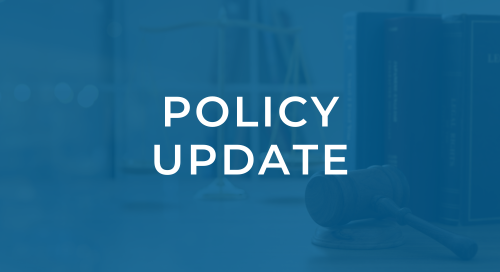The final Physician Fee Schedule is out, and we outline highlights below. We also encourage you to check out our webinar if you’d like to take a deeper dive.
In other regulatory news, the DEA and HHS are extending telehealth flexibilities for schedule II-IV medications through 2024. On the legislative front, we expect Congress to address the payment cuts from the PFS (the conversion factor drops 3.4%), and we will continue advocating for Congress to include extending the APM incentive payments in their end-of-year funding packages.
What’s in the Final PFS
The final rule looks very similar to the proposed rule and is good news for ACOs participating in MSSP, with a few policies that will likely bolster participation.
Changes to assignment methodology. CMS finalized a proposal to better account for care teams between NPs, PAs and MDs, DOs that goes into effect in 2025. When a patient does not have a physician visit in the current 12 months, CMS will now look back to the previous 12 months. Creating a 24-month window for that critical physician visit that makes a Medicare beneficiary eligible for assignment to the ACO. Note this policy does not apply to FQHCs/RHCs, where any visit already makes the beneficiary eligible.
Benchmarks and Risk Adjustment. Currently, CMS applies a cap on an ACO’s risk growth but does not apply this cap to the region that the ACO is compared to, which has created unfair distortions in benchmark calculations. Beginning in 2024, CMS finalized the proposal to apply the cap on risk growth to the region as well. Aledade has been making the case for symmetry between the cap on the ACO and the region for a long time so we are in full support of this change.
CMS also finalized modifying the use of the CMS-HCC risk adjustment model to account for the new model version in the Medicare Advantage Advance Notice that starts in 2024, using the same model version in benchmark and in performance years. Again, this symmetry is important to prevent any unintended distortions in benchmark and risk calculations.
Despite Aledade’s and others’ comments to CMS, these benchmarking and risk adjustment changes will only apply to ACOs starting new agreements in 2024 and beyond.
Quality. For performance year 2024 and subsequent performance years, CMS is establishing the Medicare CQMs for ACOs in MSSP to provide flexibility with the all-payer reporting requirements that Aledade and other stakeholders have advocated against. The Medicare CQM reporting option will require ACOs to report only on Medicare beneficiaries meeting ACO assignment criteria. We will continue our advocacy around better quality measurement policy in 2024. Our goals are the most accurate representation of the quality delivered and alignment across programs, particularly alignment with Medicare Advantage.
Health equity. CMS finalized the proposal to add a Social Determinants of Health (SDoH) Risk Assessment as an optional element of the Annual Wellness Visit (AWV) with an additional payment. The assessment will be paid separately with no beneficiary cost sharing when furnished as part of the same visit with the same date of service as the AWV. The service would include the administration of a standardized, evidence-based SDoH risk assessment tool.
Telehealth. CMS heard ours and other stakeholder voices advocating for clinicians not to have to report their home address when rendering telehealth services from their home. Through calendar year 2024, CMS is allowing practitioners to use their currently enrolled practice location instead of their home address when providing telehealth services from home. CMS will consider this issue in future rulemaking.
Supporting primary care. The rule finalized implementation of G2211, an add-on code for complex patients that better recognizes the resource costs associated with evaluation and management visits for primary care. CMS also finalized separate coding and payment for community health integration services and principal illness navigation services.
DEA extends telehealth flex for schedule II-IV through 2024
After months of advocacy from stakeholders including Aledade, the DEA and HHS issued a temporary rule extending the full set of telehealth flexibilities regarding prescription of controlled medications as were in place during the Public Health Emergency, through December 31, 2024. This extension authorizes all DEA-registered practitioners to prescribe schedule II–V controlled medications via telemedicine through December 31, 2024, whether or not the patient and practitioner established a telemedicine relationship on or before November 11, 2023.
State Policy Corner
In case you missed it, be sure to watch the recording of the State Policy team’s third National Policy Collaborative webinar focused on the topic of primary care investment initiatives. The panel of experts discussed barriers and opportunities available for mandated minimum primary care spend legislation at the state level.


